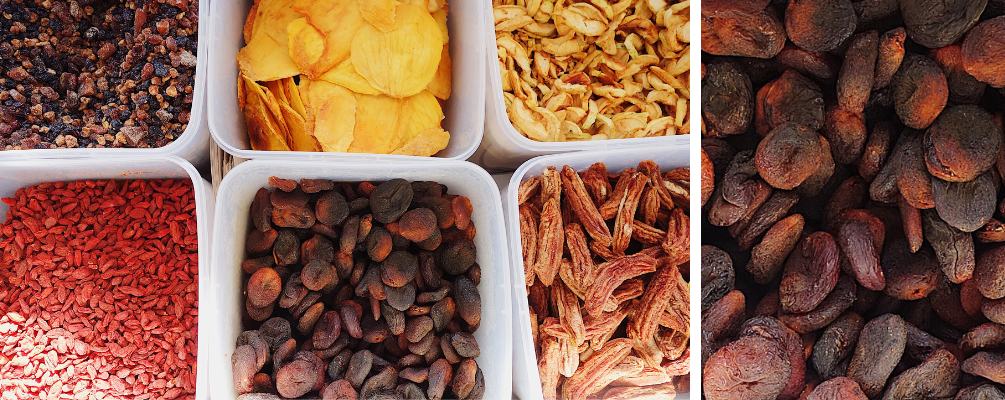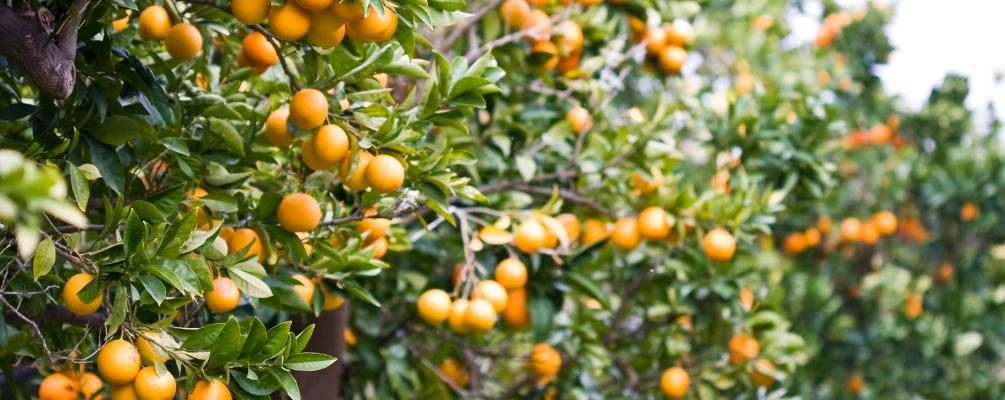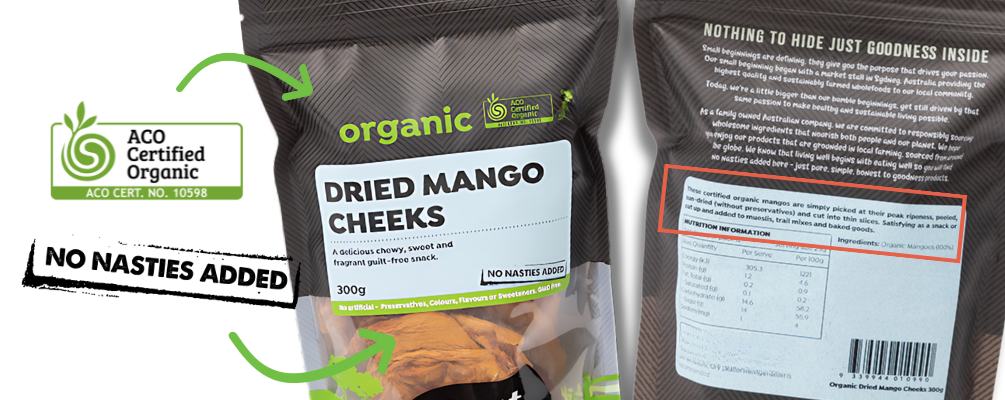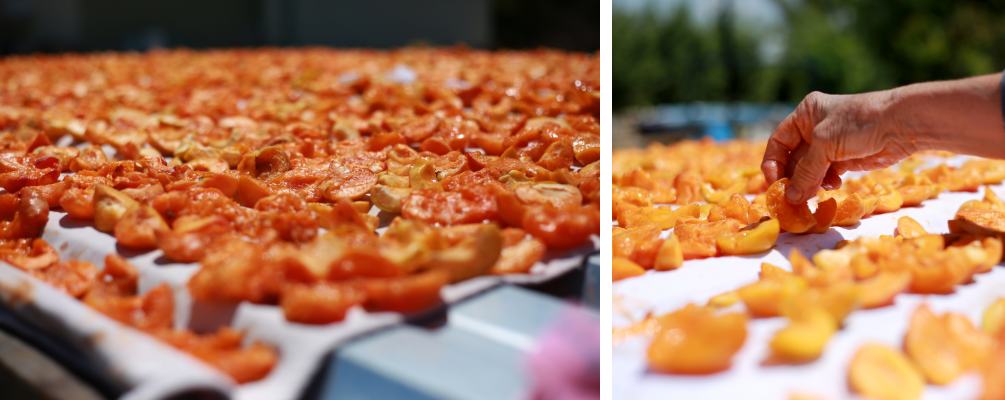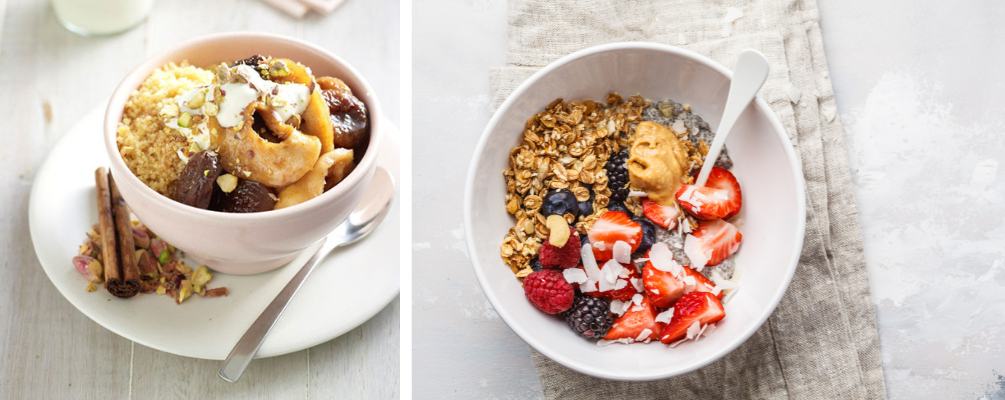The old adage “it's whats on the inside that counts” could not ring truer when you look at our range of organic dried fruits.
You might think our Australian Dried Banana Fingers are not the prettiest looking fruit on the shelf, that our Organic Dried Apricots are darker in colour and not bright and shiny orange as some other brands, or that our Organic Dried Strawberries might be mistaken for dried sultanas, such is their dark colour (but their taste is next level and really is food that loves you back!).
WELLBEING FOR ALL THE FAMILY
Some foods have naturally occuring sulphites in them such as eggs, onions, garlic and salmon. Ensuring your family's health and wellbeing by delivering organic produce in its most natural form without the use of chemicals, pesticides, colours, preservatives or additives is always front of mind when it comes to sourcing some of the best organic and natural products on the planet. So, when it comes to dried fruits, selecting organic, and preservative-free options without no added sulphites goes hand in hand with healthy living and why we started our business – even if it means our dried fruit looks a little less pretty in the eyes if some (though we think our organic fruit is beautiful in its most natural form).
WHY USE ADDITIVES?
Sulphites (also known as sulfites, sulfur, bisulfite, or sulphur dioxide) have actually been used for decades as a preservative in a range of drinks, medications and foods. Their main purpose is to help preserve a food’s bright colour, it can help reduce bacterial growth, and can also increase the shelf life of foods. However, sulphites have also been known to cause allergic reactions (according to some studies, in up to 10% of the population) – from skin irritations and wheezing, to coughing and hay fever like symptoms.
“Sulphites and sulphating agents, include sodium and potassium sulphite, metabisulphite, bisulphites, sulphur dioxide, (food additive numbers 220-228) are permitted to be used in a number of foods including dried fruit, sausages, cordials, breads, jams, biscuits, pizza dough, soft drinks and wine in the Australian food industry,” says Sydney based Clinical Nutritionist, Alison Rex.
“They are used to reduce browning in fruit, preserve the appearance and shelf life of food. Sulphites and other additives are also used in cosmetics, personal care products, plastics, hair dyes and cleaning products. It’s good to be aware of the multiple exposures you can have each day, then find companies who are removing these additives in favour of more natural products.”
Alison advises the best way to avoid additives is to read the labels of food and choose foods that are free from colours, flavours and preservatives.
“Some additives are hard to avoid, so limit exposure from multiple sources, wash fresh fruit and vegetables thoroughly, and choose quality unprocessed foods from ethical, responsible farmers where possible,” advises Alison.
OPT OUT & UPGRADE
Dried fruits are a nutrient-rich, versatile food source that can be enjoyed as a quick snack or added to various recipes. By opting for organic, natural or biodynamic, you're investing in ingredients that are free from harmful chemicals and pesticides. If you have a food allergy or intolerance, you are shopping for someone with sensitivities to food allergens and preservatives, or you simply want to avoid consuming added sulphites, it’s important to read your food labels.
“The amount of sulphites (220-228 - also listed as E220-E228) is regulated by the food industry and is mandatory on labels,” advises Alison. “Where there maybe an increased issue with sulphites, is when you have exposure from multiple sources and develop an intolerance.”
Alison says a study conducted by the Australian Food Standards (2011) found children were most at risk of exceeding the daily intake of sulphites due to repeated exposure from consuming foods like sausages, cordial and apricots where sulphur has been added as a preservative.
“Even if you aren’t asthmatic, you can develop an intolerance if you are consuming sulphites frequently,” she says.
WHAT TO LOOK FOR
When it comes to choosing dried fruits without additives, look for words like
- Organic
- Natural or biodynamic
- Free-from preservatives or additive
- No nasties added
HONEST TO GOODNESS DRIED FRUIT
Naturally dried fruits like ours do not contain added sulphites, so their darker colour occurs from natural ageing. Our Australian Dried Mango Cheeks, for example, are simply picked, peeled, sun-dried and cut into thin slices before being packed. Our Organic Dried Apricots are picked when they reach their peak flavour and sun-dried without the use of artificial preservatives or sulphur dioxide, which is why they are dark in colour and not bright orange. Our Organic Strawberries are infused in organic apple juice concentrate, then dried in drying ovens without the use of preservatives, flavour or added colour.
WHAT DOES 'NATURALLY DRIED' MEAN?
Sun-dried fruits are dried in a solar tunnel, on racks, or sometimes on the vine. Naturally dried fruits don't use oils or dips during the drying process, allowing the natural flavours of the fruit to shine through. Some fruits like raisins and berries do however sometimes need a small amount of sunflower oil to prevent clumping.
ENJOYING DRIED FRUIT
Some simple ways you can incorporate organic dried fruits into everyday cooking include:
Adding them to porridge, granola, or cereal for a nutritious breakfast boost.

